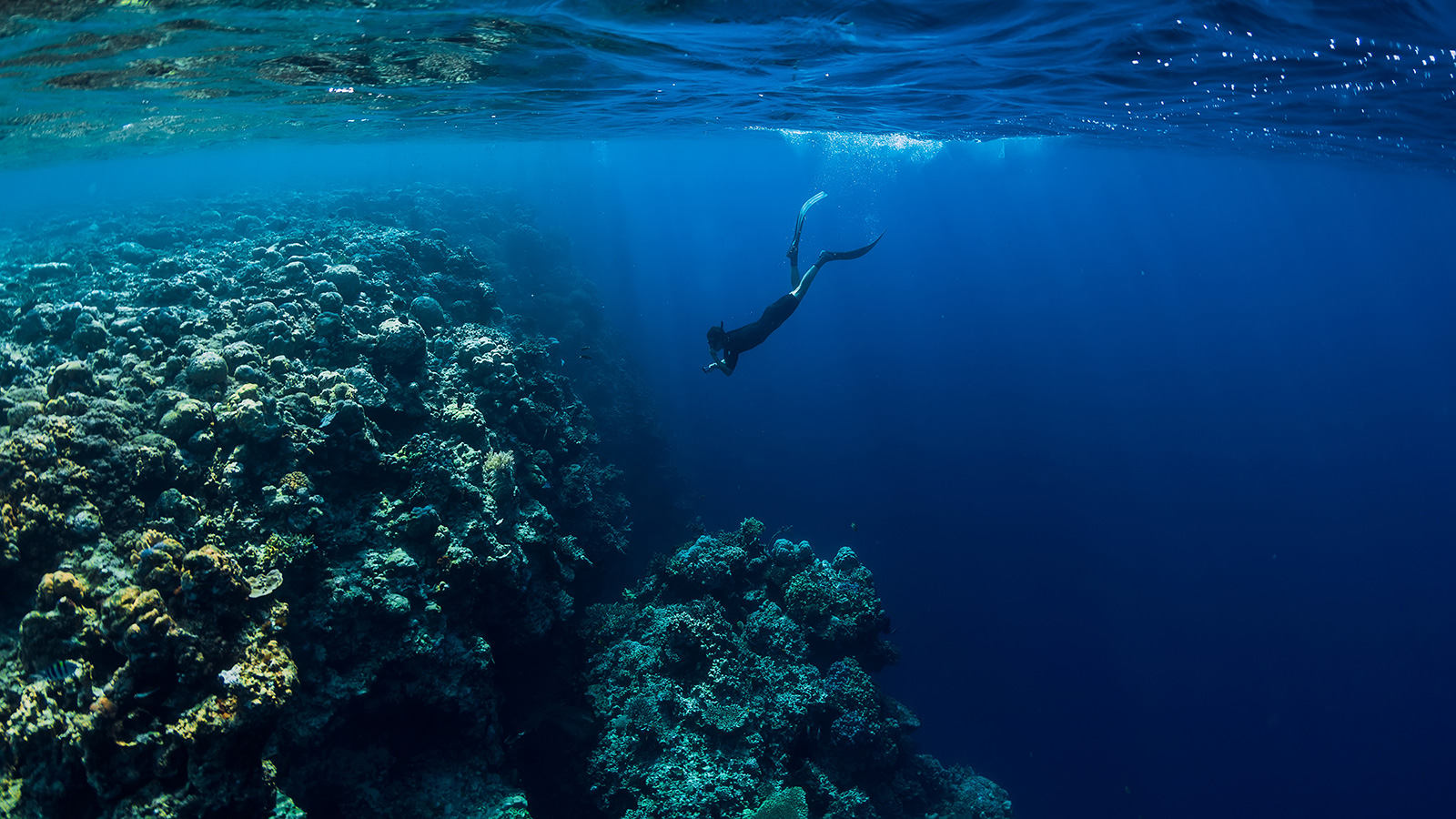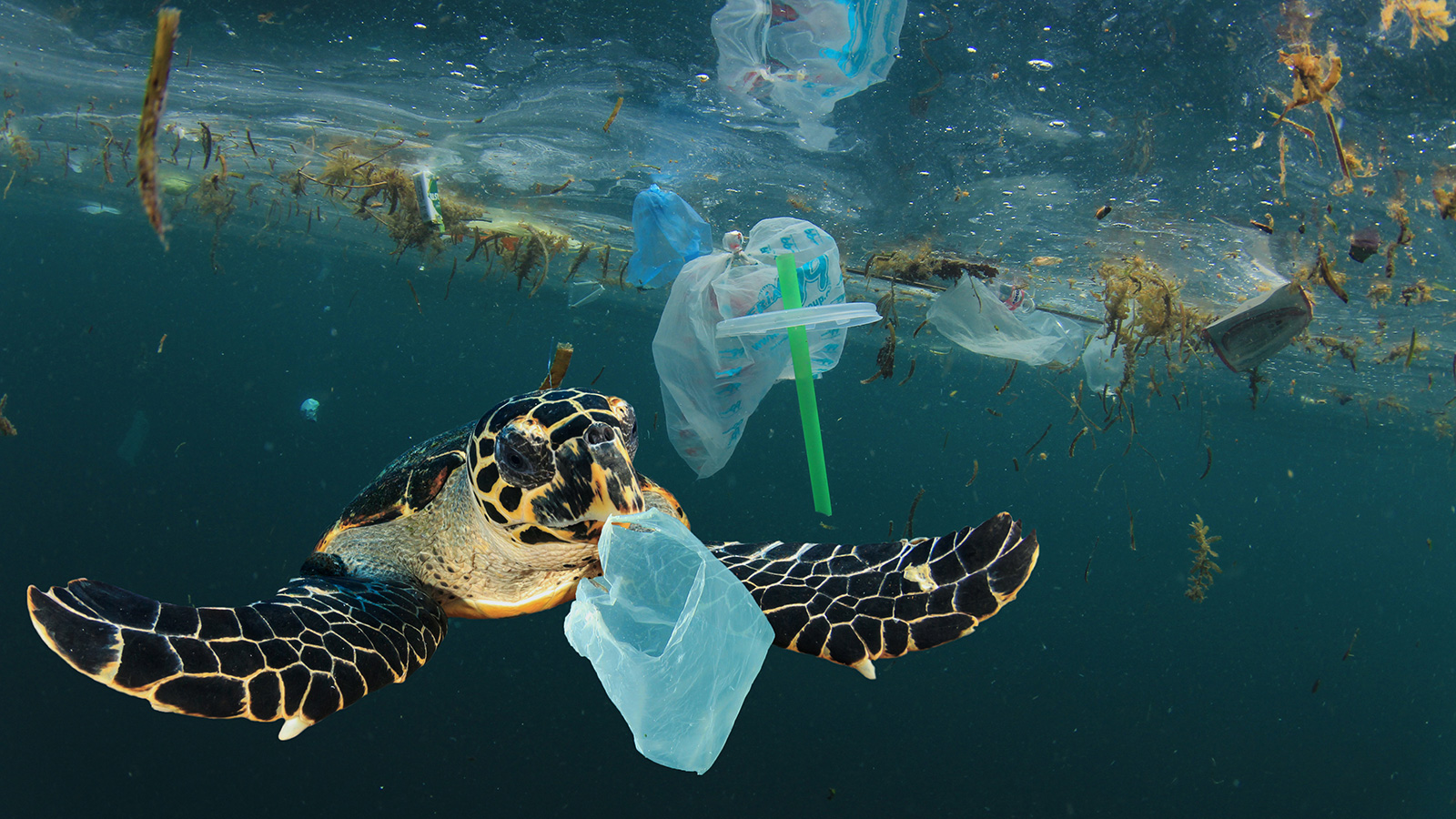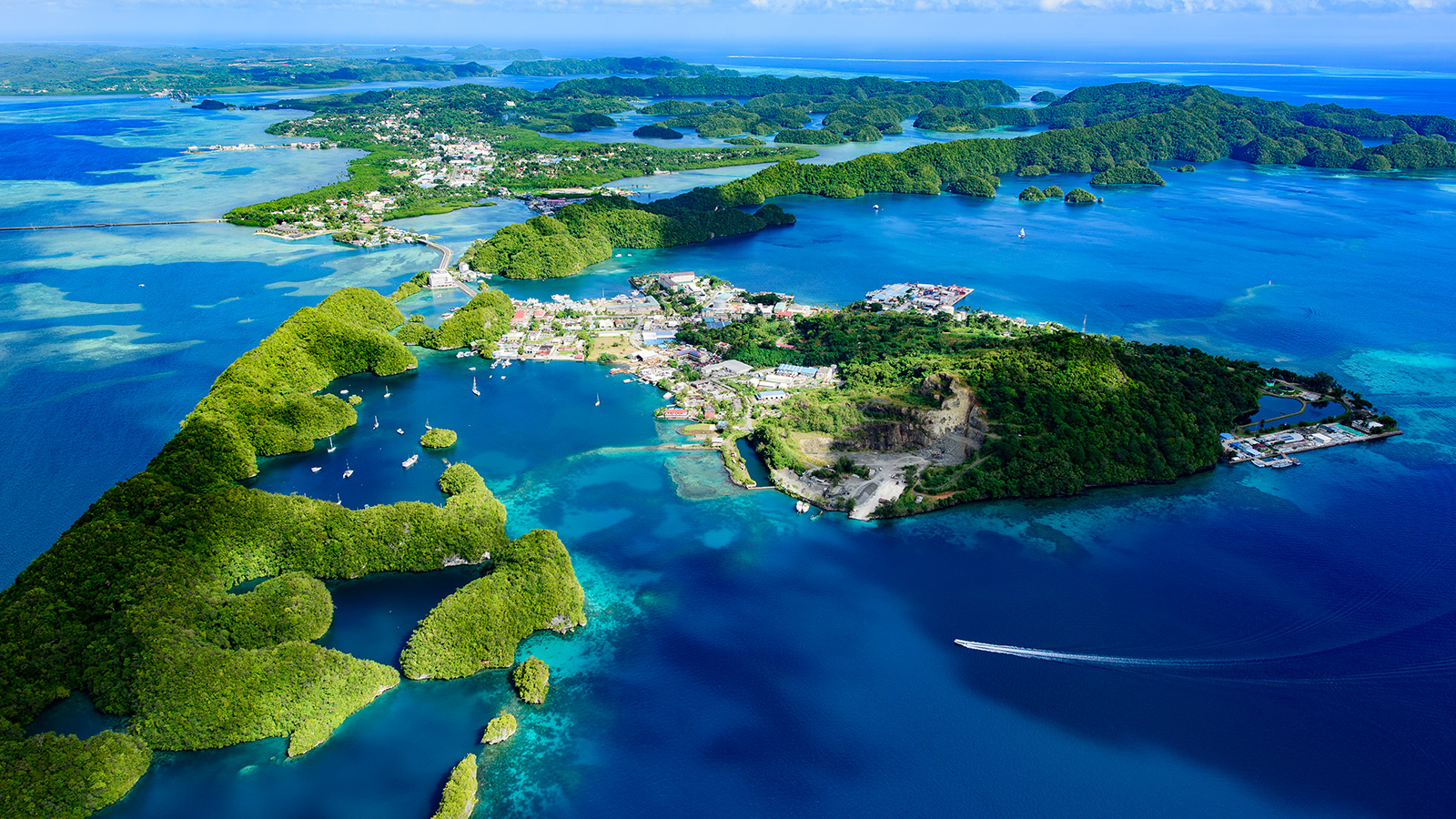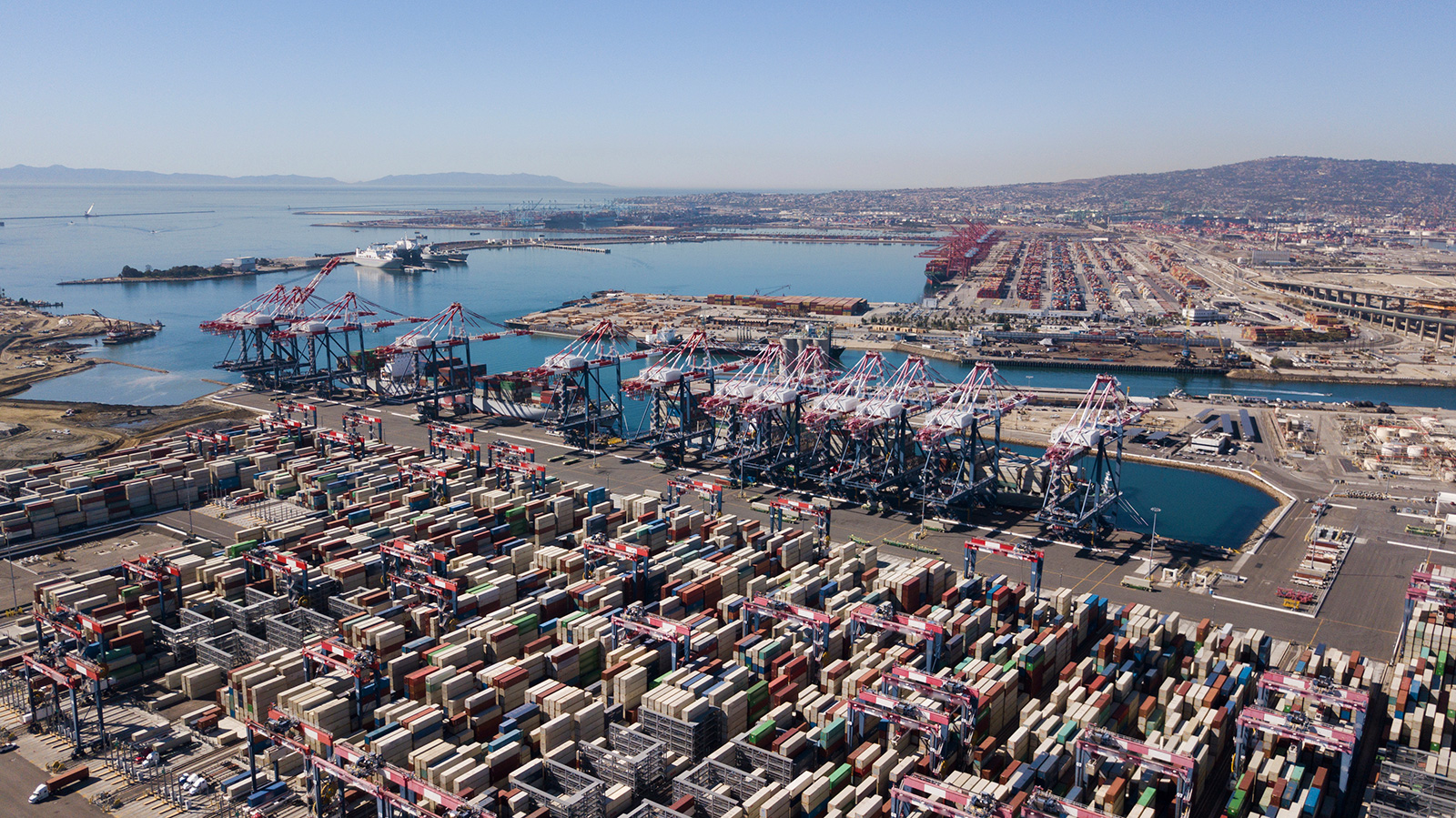
Credit: State Department photo by Justin Kenney
As the Our Ocean Conference kicks off in Palau on April 13, Our Shared Seas checked in with Assistant Secretary Monica Medina on her team’s ocean priorities for the conference and the remainder of 2022.
Assistant Secretary Medina leads the Bureau of Oceans and International and Scientific Affairs (OES) at the U.S. State Department. Her team is involved in efforts to combat IUU, stem the tide against plastic pollution, advance efforts to conserve 30 percent of land and water by 2030, and address zoonotic disease spillover to reduce the risk of future pandemics.
In 2021, you were confirmed as the Assistant Secretary for the Bureau of Oceans and International Environmental and Scientific Affairs (OES) in the U.S. State Department. For those who are less familiar with the OES Bureau, can you share a brief orientation to your team’s work?
The mission of the Bureau of Oceans and International Environmental and Scientific Affairs (OES) is to provide U.S. leadership, diplomacy, and scientific cooperation to conserve and protect the global environment, ocean, health, and space for the prosperity, peace, and security of current and future generations.
I have four key priorities as OES Assistant Secretary: fighting nature crimes like wildlife trafficking as well as other illicit activities such as illegal, unreported and unregulated (IUU) fishing; seeking global solutions to address the onslaught of plastic pollution that spills into our waterways and ocean; helping countries across the globe conserve at least 30 percent of their land and waters by 2030 to reverse the dramatic loss of nature and biodiversity (30×30); and addressing zoonotic disease spillover from animals to humans so that we can reduce the risk of future pandemics.
Additionally, in January 2021, the Biden-Harris Administration issued Executive Order 14008, “Tackling the Climate Crisis at Home and Abroad,” placing climate change at the forefront of all our efforts. We are working to build partnerships and implement solutions that will address interrelated environmental challenges in ways that will help those most afflicted. Our work in OES is truly global, from the deepest depths of the ocean floor to the farthest reaches of outer space.

Photo: iStock/Nuture
What are the key ocean-related initiatives that the OES Bureau has planned for 2022?
This is a pivotal time for our ocean given the many pressures that we ourselves have created – climate change, overfishing, pollution, and more. For all of us in OES, it’s a time of great urgency and great opportunity. We know what the threats are and what is at stake. Marine biodiversity and a healthy ocean are essential for coastal protection, climate change mitigation and adaptation, food security, recreation, and a sustainable blue economy that benefit us all. We want to make 2022 an ocean super year, the year we reversed the decline in the ocean’s health.
We want to make 2022 an ocean super year, the year we reversed the decline in the ocean’s health.
To that end, the United States announced that it is joining the High Level Panel for a Sustainable Ocean Economy (“Ocean Panel”) during the World Leaders Summit at COP26. The Ocean Panel provides a useful forum to address U.S. government top priorities, including combating IUU fishing, addressing plastic pollution, and achieving the goal of conserving or protecting 30 percent of the global ocean by 2030.
As part of our commitment to 30×30, we are also proud to support negotiations on the conservation and sustainable use of marine biological diversity of areas beyond national jurisdiction (BBNJ), an implementing agreement under the Law of the Sea Convention. The BBNJ negotiations provide a once-in-a-generation opportunity to coordinate the conservation and sustainable use of high seas biodiversity. The United States is committed to playing a leading and proactive role in the negotiations.
The BBNJ negotiations provide a once-in-a-generation opportunity to coordinate the conservation and sustainable use of high seas biodiversity. The United States is committed to playing a leading and proactive role in the negotiations.
Earlier this year, the United States was also pleased to join with nations from around the world to launch negotiations on a global agreement on plastic pollution through a UN Environment Assembly resolution titled “End Plastic Pollution: Towards a Legally Binding Instrument.” Plastic pollution is a global problem and requires a global solution. With an estimated 8 million metric tons of plastic pollution entering the ocean every year, reducing the flow of plastic waste will be important to the future of ocean health. The adopted resolution launches negotiations on a global agreement addressing the full lifecycle of plastic.
Negotiators will seek to complete their work on the plastic waste agreement by the end of 2024, and OES is excited to develop an agreement that is ambitious, innovative, and flexible. Additionally, we look forward to working with countries to promote enhanced engagement and to mobilize resources in support of the agreement’s objectives. Combatting plastic pollution will require collaborative efforts from all of us.
We’ve already accomplished a lot this year, and we will continue our work at several upcoming gatherings this year, including the U.S. co-hosted Our Ocean Conference in April, the UN Ocean Conference in June, and the UN General Assembly in the fall.

Photo: iStock/Alan Morris
The upcoming Our Ocean Conference is considered a significant moment for countries, civil society, and industry to commit to concrete action for ocean protection. How will your team engage at this conference? What would represent a sign of success for the meeting?
We are very excited to co-host the Our Ocean Conference with Palau in April and to work across the U.S. federal government, as well as with other countries and non-state actors around the world, to catalyze significant new commitments. This year, keeping the 1.5 degrees Celsius target within reach through ocean-based climate solutions and improving global climate resilience will be major themes across the conference. The importance of a healthy ocean to small island developing states—and all places where the ocean serves as a primary source of sustenance and livelihoods—will be another. This is the first Our Ocean Conference to be held in a small island state.
This year, keeping the 1.5 degrees Celsius target within reach through ocean-based climate solutions and improving global climate resilience will be major themes across the conference. The importance of a healthy ocean to small island developing states—and all places where the ocean serves as a primary source of sustenance and livelihoods—will be another.
The Our Ocean Conference has an excellent track record for producing concrete actions to protect ocean health and security. Previous conferences have resulted in more than 1,400 commitments worth more than USD 90 billion and have protected more than 5 million square miles of ocean. We expect countries to continue making strong commitments this year aimed at reducing marine pollution, supporting sustainable fisheries and aquaculture, scaling up offshore renewable energy, decarbonizing the shipping sector, protecting and restoring ocean and coastal ecosystems, and growing the sustainable blue economy.

Palau Malakal Island and Koror. Photo: iStock/Norimoto
You have written about the intertwined challenges of biodiversity loss and climate change. How will biodiversity conservation factor into the OES Bureau’s ocean work in 2022?
Biodiversity conservation is integral to our ocean work at OES. So many of our environmental challenges are intertwined—ocean health, the climate crisis, pollution, nature crimes, and others—and it is impossible to adequately address one challenge without considering others. For example, our work on areas beyond national jurisdiction is an opportunity to develop a meaningful, science-based agreement on conservation and sustainable use of high seas biodiversity, while also fostering capacity building, protecting high seas freedoms, and promoting marine scientific research. Conserving biodiversity in our ocean and on land is foundational to addressing other environmental challenges across our planet.
The Biden-Harris Administration has prioritized gender equity and equality across government initiatives. Can you provide a few examples of where you see women playing a role in ocean health and how they can be catalysts for ocean solutions?
Women play a vital role in conserving ocean health around the world, and I am so proud to work in the Biden-Harris Administration to advance gender equity and equality across OES initiatives. Plastic pollution is a great example of an issue where women play a central role in ocean health. Plastic pollution accounts for more than 85 percent of total marine debris. And because women often make up well over half the workforce in the informal waste sector, they play an essential role in developing circular economies at the community level and keeping plastic pollution out of the environment.

Fish dryers in The Gambia. Photo: iStock/Salvador-Aznar
Similarly, women often make invisible but vital contributions to fisheries management. Women fill the majority of behind-the-scenes jobs in fish processing and possess important knowledge about local fish stocks, often noticing when ecosystem changes occur before others do. Shedding light on women’s contributions to ocean conservation and employing their environmental knowledge will be crucial to catalyzing ocean solutions now and in the coming decades.
Women fill the majority of behind-the-scenes jobs in fish processing and possess important knowledge about local fish stocks, often noticing when ecosystem changes occur before others do. Shedding light on women’s contributions to ocean conservation and employing their environmental knowledge will be crucial to catalyzing ocean solutions now and in the coming decades.
Are there opportunities for these stakeholders to partner with the OES Bureau on efforts to safeguard ocean health?
We look forward to partnering with stakeholders to safeguard ocean health. We need to work together— across government, NGOs, philanthropy and industry—to find incentives that help support the durability of conservation efforts, including new management measures and sustainable finance innovations. This will help countries weather hard times without unraveling years of hard work in marine conservation. We need to decarbonize the shipping sector and acknowledge the ocean’s capacity to support the global economic transition, from offshore wind to nature-based solutions. And we must be more ambitious and take action against the harmful emissions that increase ocean acidity, devastate coral reefs, impact fish stocks, and result in warming of the ocean.
The United States is prepared to take this fight to save the ocean to the next level, and I’d like to challenge us all to increase our ambition as we think about protecting and governing our ocean. The ocean cannot be an afterthought simply because it is so vast. It must be at the heart of our fight against the climate crisis.
The ocean cannot be an afterthought simply because it is so vast. It must be at the heart of our fight against the climate crisis.

Aerial view of the Long Beach and Los Angeles ports. Photo: iStock/MattGush
Are there ways that ocean funders and NGOs can follow your team’s work in real time?
Our social media feeds are a great resource to follow OES work in real time! We can be found on Twitter (@SciDiplomacyUSA), Facebook (@ScienceDiplomacyUSA), and Instagram (@ScienceDiplomacy_USA).
